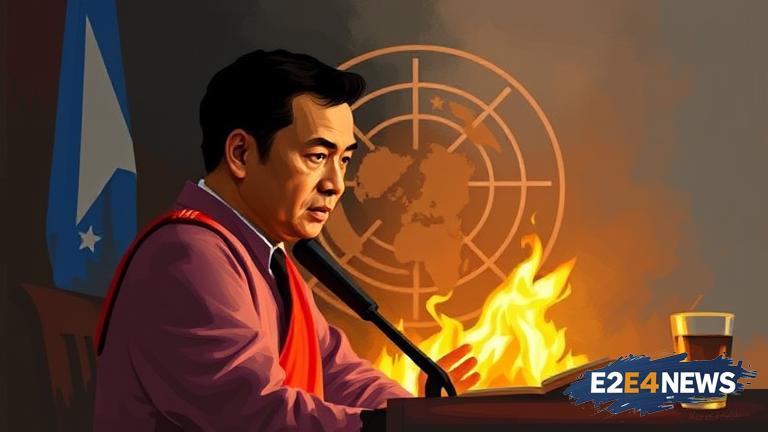The Unrepresented Nations and Peoples Organization (UNPO) has released a statement condemning the ongoing repression of the Khmer Krom people, an ethnic group native to the Mekong Delta region of Vietnam and Cambodia. The Khmer Krom have faced decades of marginalization, discrimination, and human rights abuses, including forced assimilation, land expropriation, and suppression of their language and culture. Despite their struggles, the Khmer Krom have continued to advocate for their rights and self-determination. The UNPO has long supported the Khmer Krom people in their quest for recognition and justice. Recently, the UN has issued a statement addressing the situation of the Khmer Krom, which the UNPO has welcomed as a positive step towards acknowledging the plight of this marginalized community. The UN statement highlights the need for the Vietnamese and Cambodian governments to respect the rights of the Khmer Krom and to take concrete steps to address the ongoing repression and discrimination they face. The UNPO has emphasized the importance of international attention and support for the Khmer Krom, who have been largely ignored by the international community despite their decades-long struggle for justice. The organization has called on the Vietnamese and Cambodian governments to engage in meaningful dialogue with the Khmer Krom and to work towards a solution that respects their rights and dignity. The Khmer Krom have a distinct language, culture, and history, and have traditionally inhabited the Mekong Delta region, which is now divided between Vietnam and Cambodia. However, they have faced significant challenges in maintaining their cultural identity and practicing their traditional way of life. The Vietnamese government has implemented policies aimed at assimilating the Khmer Krom into the dominant Vietnamese culture, including forced relocation, language suppression, and restrictions on their freedom of expression and assembly. The Cambodian government has also been criticized for its treatment of the Khmer Krom, including the denial of their rights to land, education, and healthcare. The UNPO has emphasized the need for the international community to take a stronger stance in support of the Khmer Krom, including through the provision of humanitarian aid and support for their advocacy efforts. The organization has also called for increased international pressure on the Vietnamese and Cambodian governments to respect the rights of the Khmer Krom and to take concrete steps to address the ongoing repression and discrimination they face. The situation of the Khmer Krom is a pressing human rights concern that requires immediate attention and action from the international community. The UNPO will continue to support the Khmer Krom in their struggle for justice and self-determination, and will work towards raising awareness about their plight and advocating for their rights. The Khmer Krom are not alone in their struggle, and the UNPO will continue to work with other marginalized communities around the world to promote their rights and dignity. The organization believes that the recognition and protection of the rights of marginalized communities is essential for promoting peace, stability, and development. The UNPO will continue to monitor the situation of the Khmer Krom and to advocate for their rights, and will work towards a future where all marginalized communities can live with dignity and respect. The Khmer Krom have the right to self-determination, and the UNPO will continue to support them in their quest for justice and recognition. The international community must take a stronger stance in support of the Khmer Krom, and must work towards holding the Vietnamese and Cambodian governments accountable for their actions. The UNPO believes that the situation of the Khmer Krom is a test of the international community’s commitment to human rights and dignity, and will continue to advocate for their rights and dignity. The organization will also work towards promoting greater awareness and understanding of the situation of the Khmer Krom, and will support efforts to provide humanitarian aid and support to this marginalized community.
